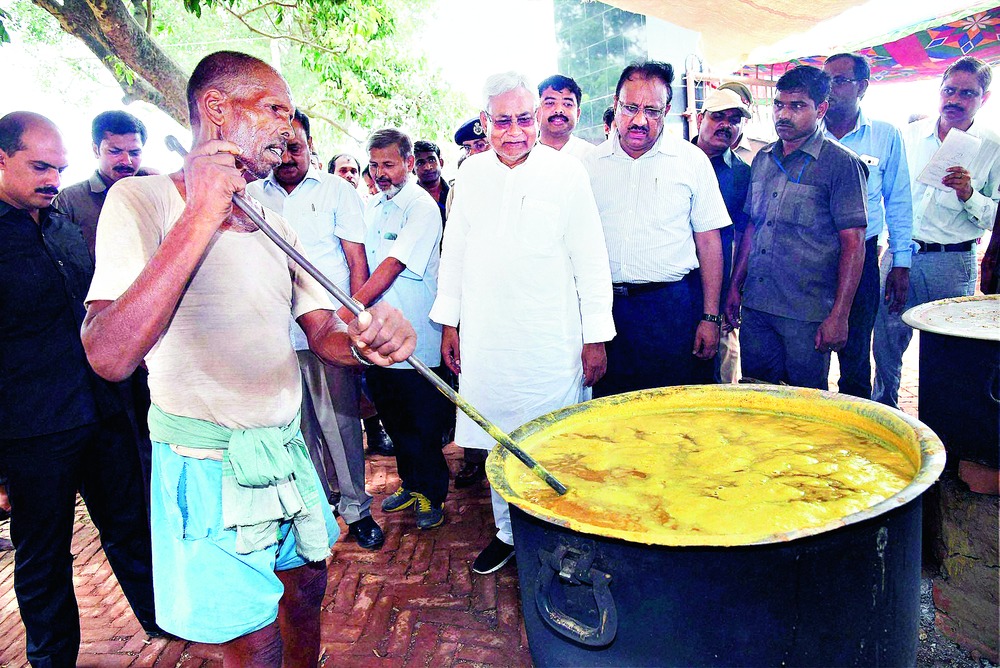
The Bihar State Disaster Management Authority (BSDMA) has pointed out serious deficiencies, ranging from availability of water to milk for children in flood relief camps operating across the state.
The deficiencies came to the fore after professionals visited the camps and assessed them over the past few days. Even chief minister Nitish Kumar had visited a relief camp on Monday.
The professionals focused on relief camps operating in Patna, Bhojpur, Saran, Vaishali and Samastipur in the wake of the devastating floods brought by the Ganga, which has hit around 38 lakh people and around 4 lakh cattle across 12 districts from Buxar to Katihar. Altogether 61 people have died in the current floods.
They pointed out contrasts and differences in arrangements and facilities at different relief camps.
While the administration gave more attention to some camps, especially those presented as model relief camps to visiting VIPs, provisions were poor at many others, which were neglected.
Focusing on 10 relief camps in Patna Sadar and Shahpur in Bhojpur district, BSDMA professionals observed that standard operating procedures (SOP) for flood relief were only partially followed and were mostly limited to the food part.
"Availability of safe drinking water was also not appropriate in some camps. Milk for children was not available in a few of the camps visited, except at the one being run at Bihar Vidyapeeth. Child friendly space was also completely missing," BSDMA vice-chairman Anil Kumar Sinha wrote to the disaster management department (DMD).
The missive said little focus was given to sanitation and hygiene at the relief camps. Kitchens were not being maintained and cleaned properly in many relief camps, and food was cooked in less hygienic conditions. The number of toilets was also insufficient given the number of people living in the camps.
Medical facilities were found to be inadequate at several places. Centralised medical centres catering to four relief camps were being run at some places, against the SOP's provisions.
However, the BSDMA noted that involvement of local MLAs, mukhiyas, anganwadi workers, school teachers and other local employees in managing flood relief camps exhibited a good practice, and there were no gender issues at the relief camps.
Suggestions have been given to include public address systems at the camps, which will be helpful in managing the people.
Meanwhile, P.N. Rai, director-general of homeguards and fire services, has been given charge of state emergency operation centre of DMD to oversee its functioning. Rai is a 1982 batch IPS officer.










